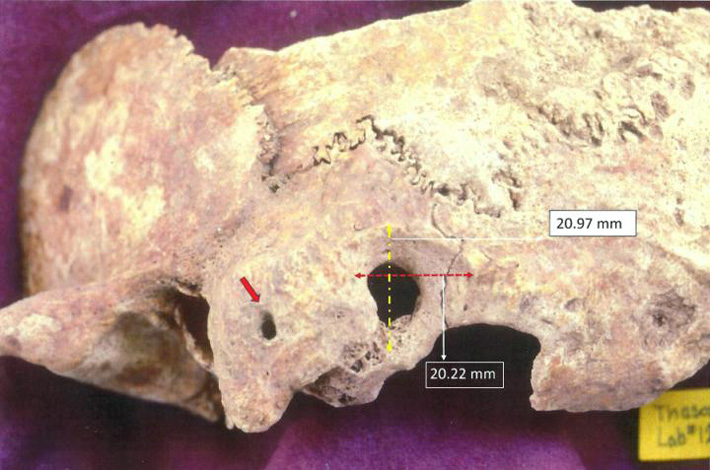New research from Adelphi University has uncovered one of the earliest documented brain surgeries, conducted in Greece during the Proto-Byzantine period (330-824 AD).
According to a statement released by Adelphi University, researchers led by Anagnostis Agelarakis examined the remains of four women and six men who were buried at the site of Paliokastro on the Greek island of Thasos.
It is assumed that the men and women were part of a group of mounted archers and lancers. Unearthed from elaborate graves near a monumental church, their bones indicated their physical activities, traumas, and even a complex form of brain surgery.
“The burial place and architecture of the funerary monumental church and the construction of the graves is spectacular,” said lead researcher and anthropologist Anagnostis Agelarakis, PhD, who added that it indicates the high social standing of the individuals buried there.
All of the individuals led physically demanding lives, and men and women had both suffered traumas that had been treated with great care, Agelarakis explained.
For the brain surgery, Agelarakis suggests that “even despite a grim prognosis, an extensive effort was given to this surgery for this male. So, it’s likely that he was a very important individual to the population at Paliokastro.”
Agelarakis explains that this brain surgery is the most “complex I have ever seen in my 40 years of working with anthropological materials,” and found it unbelievable that it was carried out in a pre-antibiotic era.
Early evidence of brain surgeries in Greece was also found over 10 years ago by Greek archaeologists in Veria, uncovering the body of woman who had died from from a failed brain operation 1,800 years ago.
“We interpret the find as a case of complicated surgery, which only a trained and specialized doctor could have attempted,” Thessaloniki site excavator Ioannis Graikos said.
